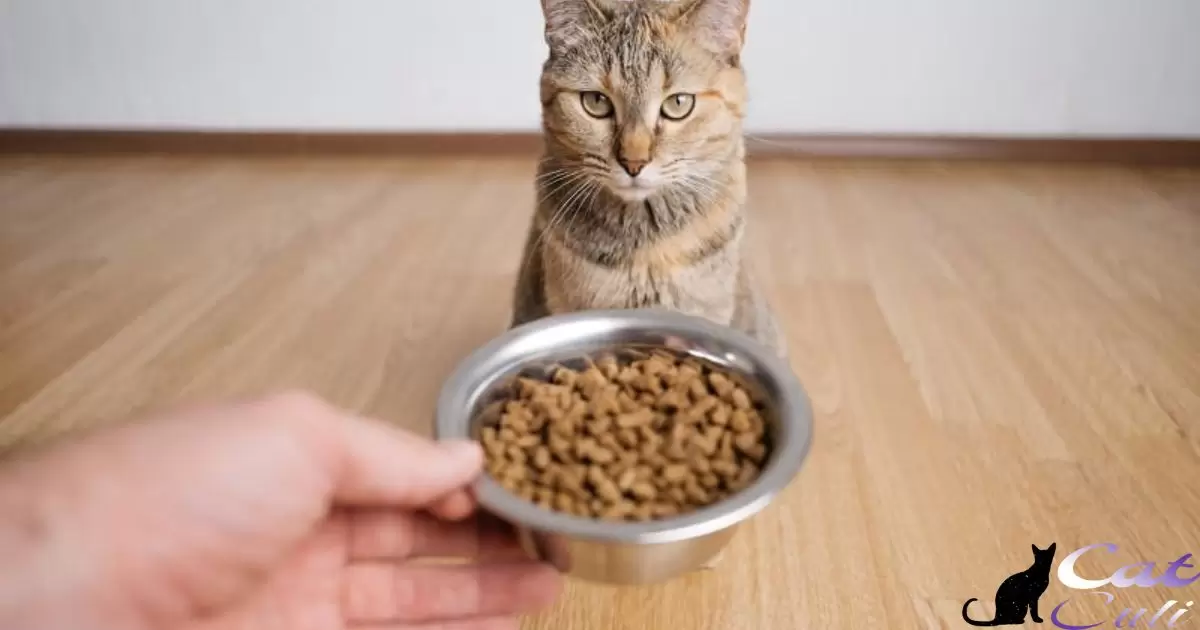Cats might become bored with their food if they eat the same thing every day. This could lead to them refusing meals or displaying disinterest. Variety in their diet can help prevent boredom and keep them healthy. Introducing new flavours or rotating different types of cat food can stimulate their interest and appetite.
Are you a cat owner wondering, Do cats get bored of their food? Feline pals may indeed tire of their meals if served the same thing repeatedly. Imagine your furry friend’s reaction when presented with the same dish day after day. It’s time to uncover why your cat’s mealtime routine might need a dash of variety to keep their interest piqued.
It’s a common concern among pet owners. Cats, like us, can become tired of eating the same thing every day. Introducing variety can help keep them interested and ensure they’re getting all the nutrients they need. Stick around to discover how to keep your cat’s meals exciting and satisfying.
Do Cats Need Variety In Their Food?
Cats benefit from having variety in their diet. Offering different flavours and types of food ensures they get a wide range of nutrients. Without variety, cats might become finicky or disinterested in their meals, affecting their overall health.
Providing a mix of wet and dry food, or rotating between various brands, can keep your cat excited about mealtime and support their nutritional needs.While some cats might seem content with a consistent diet, introducing variety can prevent them from getting bored with their food.
Trying out different protein sources or textures can also cater to their natural preferences and prevent mealtime monotony. Cats get tired of the same food, so offering a diverse range of options ensures your cat enjoys a well-rounded diet, leading to a happier and healthier furry companion.
Why Is It Important To Rotate A Cat’s Food?
Rotating a cat’s food matters because it ensures they get diverse nutrients. Cats might miss out on essential elements if they stick to one type of food. Varying their diet helps prevent boredom and picky eating habits in cats. It also reduces the risk of developing food allergies or sensitivities.
Changing up your cat’s meals keeps them curious and excited about eating. It mimics their natural hunting instincts, making mealtime more engaging. By rotating their food, you help maintain their interest, ensuring they stay healthy and satisfied.
Can Cats Live On Dry Food Only?
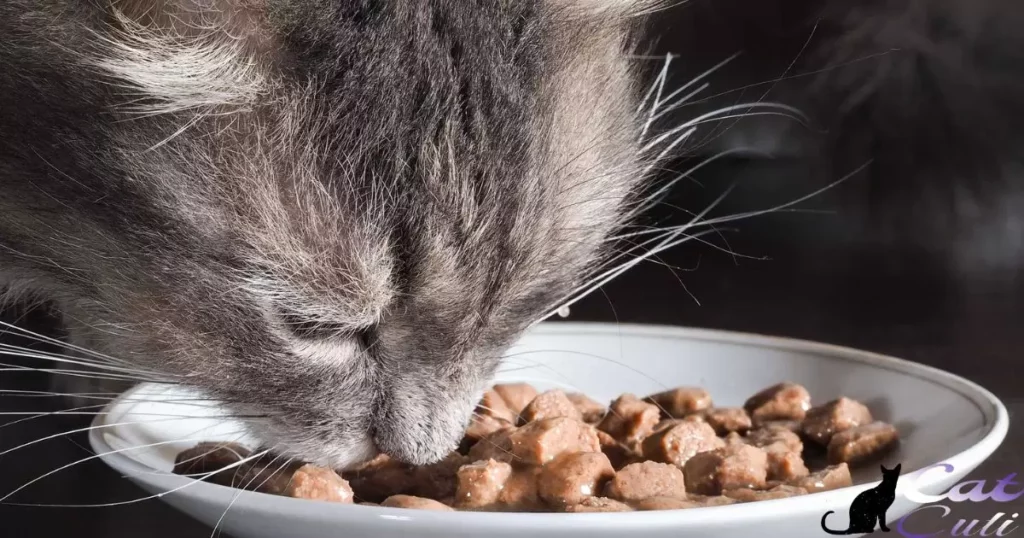
Cats can survive on a diet solely of dry food, but it might not be the healthiest choice. Dry food lacks the moisture content found in wet food, which could lead to dehydration issues, especially in cats who don’t drink enough water.
Offering a mix of both dry and wet food ensures they get enough hydration and a balanced diet, promoting their overall health and well-being.While cats can technically exist on a diet solely composed of dry food, it’s essential to consider their specific needs. Dry food lacks the moisture content crucial for their hydration.
Supplementing with wet food helps maintain their water intake, contributing to better overall health and preventing potential urinary or kidney issues. Mixing both types of food offers a more balanced and optimal diet for your furry friend’s well-being.
Do Cats Get Tired Of Meowing
Cats might get tired of meowing if they feel their message isn’t getting through. When they meow and don’t get the response they seek, they might stop or change their approach. Understanding their different meows can help address their needs and prevent any fatigue in their vocalizations.
It’s essential to pay attention to your cat’s meows as they use this communication to express various desires. If they’re constantly meowing without a clear reason, it might indicate they’re seeking attention or trying to convey discomfort.
By being attentive and responsive to their meows, you can better understand and address their needs, preventing any potential weariness in their communication style.
Do Cats Get Bored Of The Same Toys
| Aspect | Description |
| Variety | Cats can become bored with repetitive toys, seeking new stimuli to maintain their interest. |
| Rotation | Rotating toys periodically keeps cats engaged, preventing them from losing interest. |
| Interactive Play | Toys that encourage interaction between you and your cat can prolong interest and engagement. |
| Enrichment | Offering a mix of toys that cater to different senses—sight, sound, and touch—keeps them engaged. |
Do Cats Get Bored Of Being Inside
Cats might grow weary of being indoors for extended periods. They are naturally curious creatures and enjoy exploring their surroundings. Lack of stimulation indoors could lead to boredom and restlessness in cats. Providing interactive toys and creating an enriching environment can help keep indoor cats engaged and content.
Allowing cats occasional supervised outdoor time or setting up window perches can satisfy their desire for exploration. Monitoring their safety is crucial to ensure they don’t wander off or encounter potential dangers outside. Balancing indoor comfort with opportunities for safe exploration can alleviate potential boredom for indoor cats.
Do Cats Need Wet Food Every Day?
Cats benefit from wet food daily due to its high moisture content, aiding in hydration essential for their health. It also provides necessary nutrients and helps maintain urinary tract health. Incorporating wet food into their diet each day supports their overall well-being, ensuring they get the hydration and nutrients they need.
Some cats might have individual preferences. Some may thrive solely on dry food, while others enjoy a mix of wet and dry options. It’s important to observe your cat’s reactions and consult with a vet to determine the best feeding routine for your feline friend.
How To Switch Your Cat’s Food
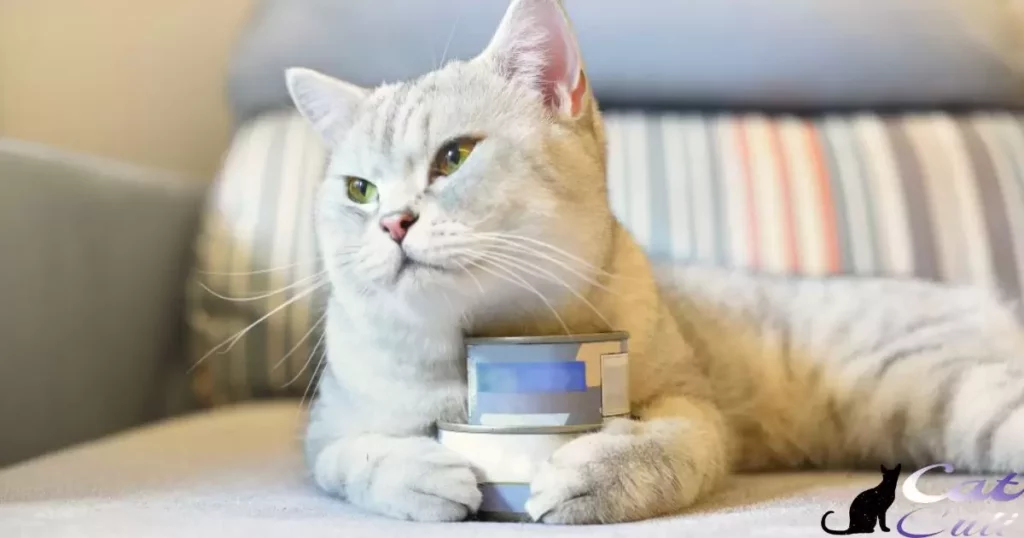
Follow these steps for a smooth transition. Begin by mixing small amounts of the new food with their current one. Gradually increase the new food while decreasing the old over a week. This helps prevent tummy upset and allows your cat to adjust easily.
Sudden changes can upset your cat’s stomach. Slowly introducing the new food ensures they adapt comfortably. Monitor their behaviour and appetite during the switch to ensure they’re adjusting well.
Transitioning From Dry To Wet Food
Transitioning from dry to wet food is a gradual process for your pet. Start by mixing a small amount of wet food into their dry meals. Slowly increase the proportion of wet food while decreasing the dryness. This shift helps your pet adjust to the new texture and taste without causing digestive issues.
This transition aids in preventing any sudden changes that might upset your pet’s stomach. Gradually introducing wet food also allows your pet to adapt comfortably, ensuring they maintain a balanced diet throughout the switch.
Why Do Cats Never Finish Their Food?
Cats often leave food unfinished because of their natural instincts. They prefer smaller, frequent meals, mimicking their hunting behaviour. They might be signalling that the food doesn’t meet their preferences or freshness standards.
Another reason could be their sensitive whiskers. When the dish is too deep, it can bother their whiskers, making it uncomfortable to reach the food at the bottom. This might prompt them to leave some food behind, even if they’re still hungry.
Why Do Cats Want You To Walk Them To Their Food?
Cats often lead their owners to their food bowls for various reasons. They might seek companionship or a sense of security while eating. Walking with you could also be their way of showing trust and seeking reassurance. It’s a chance for bonding and a display of their comfort and reliance on your presence during mealtime.
Your cat’s insistence on you accompanying them to their food bowl could stem from their instinctual behaviour. In the wild, cats are cautious about their surroundings, especially while eating. Having you near might make them feel safer, ensuring no potential threats are lurking around. It’s their way of ensuring a peaceful and secure dining experience.
Why Do Cats Want You To Watch Them Eat?
Cats often want you to watch them eat because they feel safe and secure when you’re around. Your presence reassures them, making mealtime a comfortable experience. They might seek your attention to bond and show trust while they enjoy their food.
When your cat invites your gaze during meals, it’s a form of connection and communication. They might view you as part of their pack and want to share this intimate moment. Your attention validates their actions, making them feel cared for and understood.
Is It Bad To Switch Your Cat’s Food?
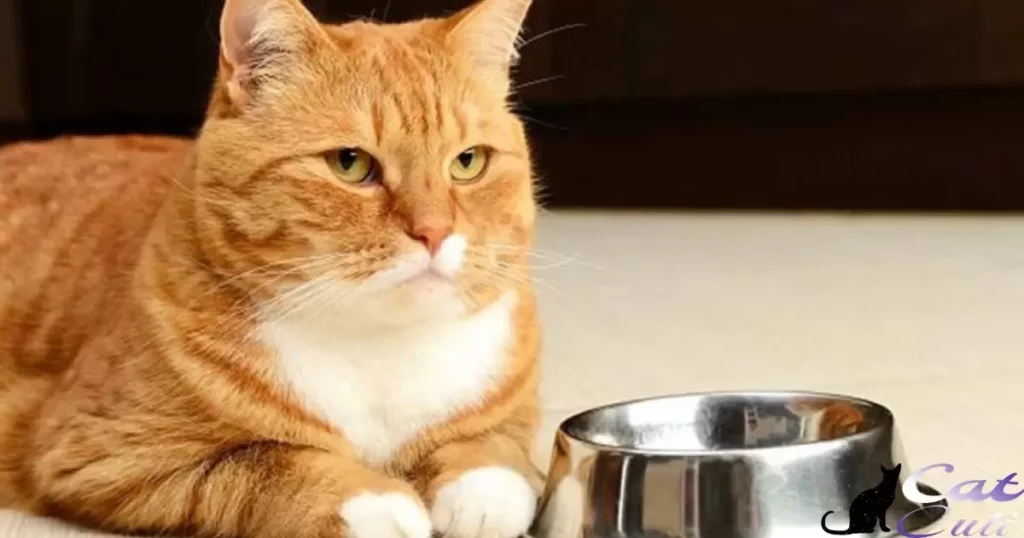
Changing your cat’s food isn’t necessarily bad. Cats might have sensitive stomachs, so abrupt switches could upset them. Transitioning by mixing new and old food helps avoid digestive issues. Always consult your vet for guidance on the best way to switch your cat’s food.
Sudden changes in food can lead to stomach upset in cats. Slowly introducing new food over a week or two can ease their transition and prevent digestive problems. Seeking advice from your veterinarian ensures a smooth switch that’s tailored to your cat’s needs.
Do Cats Get Bored Of The Same Food?
Cats often grow weary of eating the same food every day. They prefer variety in their meals, just like we do. Offering different flavours or alternating between various cat food types can prevent their mealtime boredom.
Changing up their menu regularly keeps their interest alive and ensures they’re getting a well-rounded diet. Keeping your feline friend excited about mealtime is as simple as offering a bit of variety in their food choices. Cats thrive on change and appreciate a diverse diet to keep them engaged and satisfied during meals.
How To Tell If Your Cat Is Bored?
Spotting boredom in your cat is simpler than you might think. Watch for signs like excessive sleeping or over-grooming, as these can indicate boredom. Lack of interest in toys or activities they once loved also suggests they might be feeling a bit bored.
Engaging your cat in interactive play or introducing new toys can help alleviate their boredom and keep them happy.Another way to gauge your cat’s boredom is through their behaviour. If they start exhibiting destructive habits like scratching furniture or meowing excessively, it might be a sign of boredom.
Providing a variety of stimulating toys or creating new hiding spots around the house can keep them entertained and prevent boredom-related behaviours.
Undereating
Undereating refers to consuming less food than necessary for proper nourishment. It can lead to health issues if prolonged.
Inactivity
Inactivity refers to a lack of physical movement or exercise. It can contribute to various health problems in both humans and animals.
Hunting
Hunting is an instinctual behaviour in many animals, including cats, used to catch prey for food. Domestic cats often display hunting behaviours even when well-fed, engaging in activities like stalking, pouncing, and chasing toys.
What To Do If Your Cat Seems Bored?
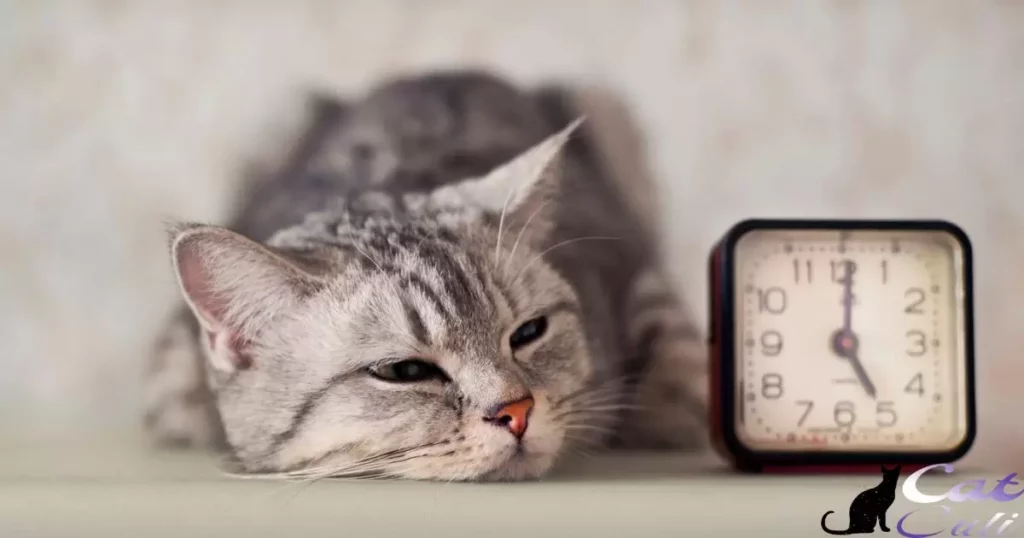
If your cat appears bored, spice up their routine with interactive toys. Engage them in playtime to stimulate their mind and body. Creating a stimulating environment with scratching posts or puzzle feeders can also keep them entertained and active.
Consider rotating their toys or introducing new ones periodically. Offering a variety of activities can prevent boredom and help maintain their mental sharpness. A little change in their surroundings can go a long way in keeping your feline friend engaged and happy.
Play Before Their Mealtime
Playing with your cat before mealtime can mimic their natural hunting instincts and build up their appetite. Engaging in a short play session can stimulate their appetite, making them more eager to eat their meals.
Make Their Meals More Fun
To make mealtime more enjoyable, consider using interactive feeders or puzzle toys. These can make them work a bit for their food, adding an element of fun and mental stimulation to their eating routine.
Mix Their Wet And Dry Food
Mixing wet and dry food can offer both variety and additional hydration for your cat. It adds different textures and flavours to their meals, making it more interesting and potentially more appealing to their taste buds.
When Should I Change My Cat’s Food
Changing your cat’s food should happen gradually to avoid upsetting their stomach. Start by mixing a small amount of the new food with their current one, gradually increasing the ratio over a week or two.
Watch for any signs of digestive issues or reluctance to eat as you transition them.Consider changing your cat’s food when they show signs of boredom or disinterest in their current meals. Also, if their dietary needs change due to age, health issues, or activity levels, a change in food might be necessary.
How And When To Change A Cat’s Food
Start slowly by mixing small portions of the new food with the old. Gradually increase the new food amount over a week or two. Watch for any signs of an upset stomach or reluctance to eat; they might indicate a need for a slower transition.
The best time to change a cat’s food is when they’re healthy and not stressed. Avoid sudden shifts, especially during times of illness or change in their environment. A smooth transition ensures their digestive system adjusts comfortably to the new diet.
Transition To A New Cat Food Slowly
When shifting to a new cat food, do it gradually. Introduce the new food in small portions mixed with their current one. Slowly increase the ratio of the new food over a week or two. This helps your cat adjust to the change without upsetting their stomach.
A sudden switch might lead to digestive issues for your cat. Gradual transitions allow their digestive system to adapt smoothly to the new food. Remember, patience during this transition helps your cat embrace the change comfortably.
Avoid Low Quality Cat Food
Choose high-quality cat food to keep your furry friend healthy. Low-quality options might lack essential nutrients. Reading labels helps you identify good choices easily. Your cat’s well-being relies on the food you provide.
Low-quality cat food can harm your cat’s health. It might lack vital nutrients necessary for their growth. Ensure your cat’s food meets their nutritional needs. Always opt for higher-quality options for their overall well-being.
Feed Your Cat A Mix Of Wet And Dry Food
Mixing wet and dry food for your cat offers various benefits. It provides hydration from the wet food while the dry food aids dental health. This combination also gives your cat a range of textures and flavors, making mealtime more enjoyable. It’s a simple way to ensure they get the nutrients they need for a balanced diet.
Introducing both wet and dry food into your cat’s diet can prevent mealtime boredom. Cats can be picky eaters, but offering variety keeps them interested. Plus, the mix provides flexibility in feeding schedules, accommodating your cat’s preferences while promoting overall health.
Make Your Cat’s Meals More Fun
- Introduce puzzle feeders or interactive toys to make mealtime engaging.
- Rotate different flavours and textures of cat food to prevent boredom.
- Use elevated or multiple feeding stations to mimic hunting behaviours.
- Incorporate treats or occasional homemade meals for variety.
- Experiment with different feeding schedules to keep your cat stimulated.
- Consider food dispensing toys to encourage mental and physical activity during meals.
How Can You Spice Up Your Cat’s Food Bowl?
Try adding variety to their food bowl! Incorporate different flavours or textures by mixing wet and dry food together. Consider rotating their food options regularly to prevent mealtime monotony and keep them interested.
Another way to spice up your cat’s food bowl is by introducing occasional treats or toppings. Sprinkle a small amount of tuna flakes, cooked chicken, or a dollop of wet food on top of their regular meal to add a burst of flavour and make eating more enjoyable for your feline friend. .
Do Cats Care About Food Variety?
Cats care about food variety just like humans do. Offering different flavours and textures keeps them interested in mealtime. They appreciate diversity in their diet, which can also prevent boredom and fussiness. Introducing various options ensures they get the nutrients they need while enjoying their meals.
While cats have preferences, they’re not always set in stone. They might initially resist new foods, but gradual introductions can help them adapt. Providing a mix of options allows cats to choose and helps cater to their evolving tastes, making mealtime an enjoyable experience for them.
Do I Need To Change My Cat’s Diet?
It might be necessary if your cat shows signs of allergies, digestive issues, or lacks interest in their current food. Observing your cat’s behaviour and consulting a vet can guide you in deciding whether a diet change is beneficial.
Switching a cat’s diet should be gradual, mixing new food with the old to prevent stomach upset. Cats might resist sudden changes, so patience is key. Always seek professional advice when altering their diet for the best results and their health.
Changing The Eating Habits Of My Cat
Changing your cat’s eating habits can be a gradual process. Start by introducing new foods slowly, mixing them in with their current diet. Cats may resist sudden changes, so patience is key in transitioning them to a different meal routine.
Offering variety and observing their preferences helps in creating healthier eating habits for your feline friend.To encourage your cat’s new eating habits, maintain a consistent feeding schedule. Serve meals at the same times each day to establish a routine.
Create a comfortable eating environment, ensuring their food and water bowls are clean and easily accessible. By making these adjustments gradually and consistently, you can successfully change your cat’s eating habits.
FAQ’s
How do you know if your cat is bored of their food?
Watch for decreased interest, refusing meals, or playing with food. Changes in eating habits can indicate boredom.
Do cats stop liking their food?
Yes, repetitive meals might make them lose interest. Introduce variety to keep them engaged and interested.
Is my cat hungry or just wants food?
Cues like meowing or pacing could signal hunger. Monitor meal times to understand their eating patterns.
Conclusion
Do cats get bored of their food?” holds weight. Cats, like us, seek variety. Their reluctance or disinterest in meals could stem from monotony. Introducing new flavours or rotating their diet helps combat food boredom, ensuring they get essential nutrients while staying excited about meals.
Understanding your cat’s preferences is key. Observing their reactions and mealtime behaviours can guide you in keeping their diet engaging. Ultimately, a varied diet not only prevents boredom but also promotes their overall well-being.
